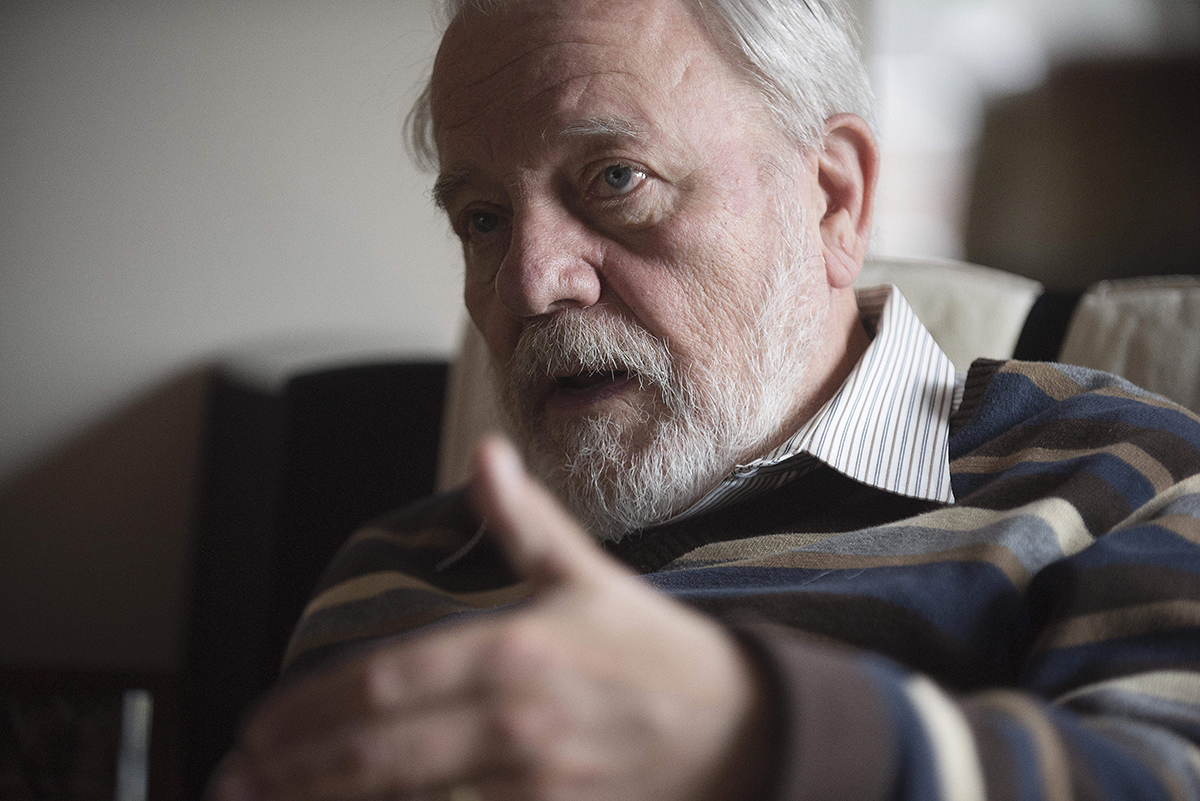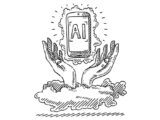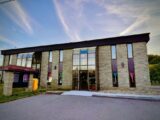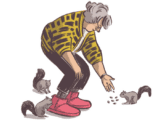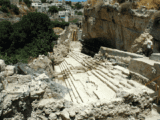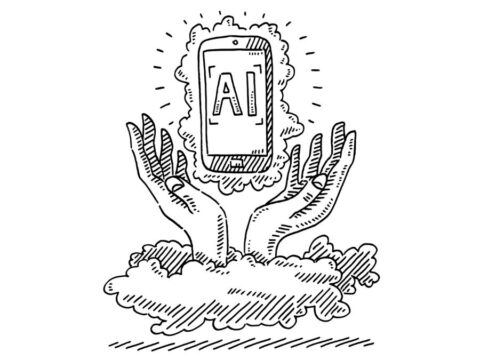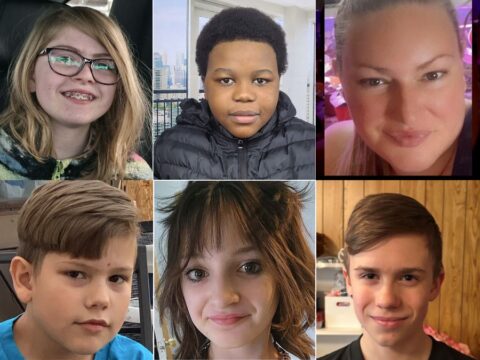Q You’re a retired theology professor and an ordained United Church minister. But you grew up in Germany during the Second World War. What was your childhood like?
A I was born in 1935, in a town called Leuna in central Germany. Hitler was at his peak of popularity. I was four years old when the war broke out. I had no experience of the war at that time, except when classmates, relatives or neighbours would say, “So-and-so didn’t come back from the front.”
You may unsubscribe from any of our newsletters at any time.
But in 1944, the Allied bombing raids began on Leuna; the campaign included Canadians who would have flown the Lancaster bombers. Our town was a highly significant military target — we experienced 28 major air raids. We had to rush from our home to an air-raid shelter.
Ten days before the end of the war, my brother, a 16-year-old Hitler Youth volunteer, was killed on the front. My father was not in the armed forces because of his position in the IG Farben company.
Q Was your family religious?
A Our family had regular devotions on Sunday mornings. We would read the Bible, pray and sing, and go to church afterwards. My parents were decent, pious Christians. My own faith is rooted in that.
Q IG Farben was Germany’s largest chemical company and deeply implicated in the Nazi regime. What can you tell me about your father’s work there?
A IG Farben built camp three at Auschwitz. My father didn’t work there. Heinrich Himmler [a senior Nazi official] offered my father’s company the work force — the extermination camp inmates. When the workers arrived at camp three [also called Auschwitz-Monowitz], there was another selection: who could work and who could not.
The man who made those selections was a close friend of my father’s, a wonderful father and husband, a civic-minded guy. [He] knew that people who were refused would be gassed and killed.
A memorial book commemorating Jewish labourers who died includes 33,000 names, but the estimate of people exterminated by my father’s company ranges up to 100,000.
Q You were raised in an environment that was inherently anti-Semitic. When did your attitudes change?
A In Germany, I had never met someone I knew to be Jewish. I’m a typical postwar-generation German. After the war, we were preoccupied with our own suffering, not the suffering of others.
My family moved to Switzerland when I was 14, and then to Canada in 1952, when I started at McGill University.
In 1955 in Montreal, a friend I liked a lot was in three classes with me. We would play snooker. During one game, he hit his knee and uttered something. I said, “I didn’t know you spoke German.” He said, “That was not German; that was Yiddish.”
It was like a curtain falling away from me. Everything I had learned about Jews — from my school, my church, my family — was false. He didn’t cheat. He didn’t tell me lies. That was the beginning.
One of my classmates was [singer-songwriter] Leonard Cohen. I said, “Why should I look at this guy and think [badly] about him?”
At age 19, I became a candidate for the ministry. In 1961, I was ordained.
Q Did your new understanding cause a rift with your parents?
A In 1961, I began to ask questions. I asked them, “How much did you know?” Their answer: “We didn’t know.”
I asked my father, “But you knew the fellow who ran Auschwitz III?” He said, “We certainly didn’t know.”
I asked if he ever went to Auschwitz. He said no. But after he died, my stepmother gave me a little black book that listed all the paintings my father had seen, because she knew I also loved art. At the very back of the book were three pages of his business trips between 1940 and 1945. In my father’s handwriting, it read, “1944, Auschwitz.”
My father lied to me. He was part of the program at IG Farben . . . exterminating Jews. My father knew they were gassed and killed.
I love my father. But I have to love my father as someone who lied, and someone who knew. I call myself a child of a perpetrator.
Q Is Germany coming to terms with responsibility for the Holocaust?
A What the Germans have finally grasped is that they can now mourn what’s done in their name. But concurrent with that is the rebirth of Nazi groups. I’m unhappy about that, but much happier that the German government, schools and churches have had to face it, to make sure it doesn’t happen again. We Germans bear a responsibility for what has happened and what is going to happen.
There is a parallel here to Canadians seeing that what we have done to Native people is godawful. Not only the church but also the government has given an apology. I’m glad I’m a Canadian and part of the United Church, so I can experience this new birth.
Q But you now live in the United States, where racism seems to be growing.
A The Southern Poverty Law Center says there are more than 900 hate groups in the United States, including well over 100 specific anti-Semitic groups.
What is certainly growing is their confidence. They are now coming out without masks in many instances and showing their faces. In Charlottesville, Va., it was like the Nazis in 1938, with torches.
They are confident that there is enough support among white citizens that they can find a public echo. The election of Donald Trump as president is a significant contributing factor in this growth of confidence.
Q What should Christians do?
A It’s not an easy question. Excepting public radio, the mainstream media here will pooh-pooh any kind of counter-demonstration. They don’t think it’s effective.
As followers of Christ, when we meet someone who is a foreigner, we must show them they are noticed, welcomed, accepted. They are not alone, but a child of God like us. I think that the church has a lot of learning still to do in not turning down another human being.
Q Christian theology has been used to defend all manner of racist evils. Is there a flaw in our theology or in the Bible itself?
A The whole Christian story — the rejection of Jesus by the Jewish society, so the church is now the chosen people — is a radically anti-Jewish position. We are followers of Jewish Jesus. We want to embrace his God, the God of Israel. Once we are alert to the tradition of anti-Judaism in the church, we can begin to read the text differently. We need to talk to the Jews to develop the right hermeneutic.
Q How do you cope with your own personal history?
A I am an anti-Semite in remission. It is a burden I bear, but it isn’t destroying me. I attribute that to my many close friends who are Jewish, who tell me, “Work with us on anti-Semitism.” If I stop doing this, I’m going to let them down.
I belong to an international group of Holocaust scholars. Last year, we went together to Auschwitz. We came to the execution wall, where they lined up people and shot them. Spontaneously, our Jewish men put on kippot [skullcaps] and knelt down. One of my Jewish colleagues said, “Martin, come and join us.” When a Jewish woman can go to a German man and say that, I know what resurrection is about.
This interview has been condensed and edited from two conversations. It originally appeared in The Observer’s November 2017 issue with the title “‘I call myself a child of a perpetrator.'”

